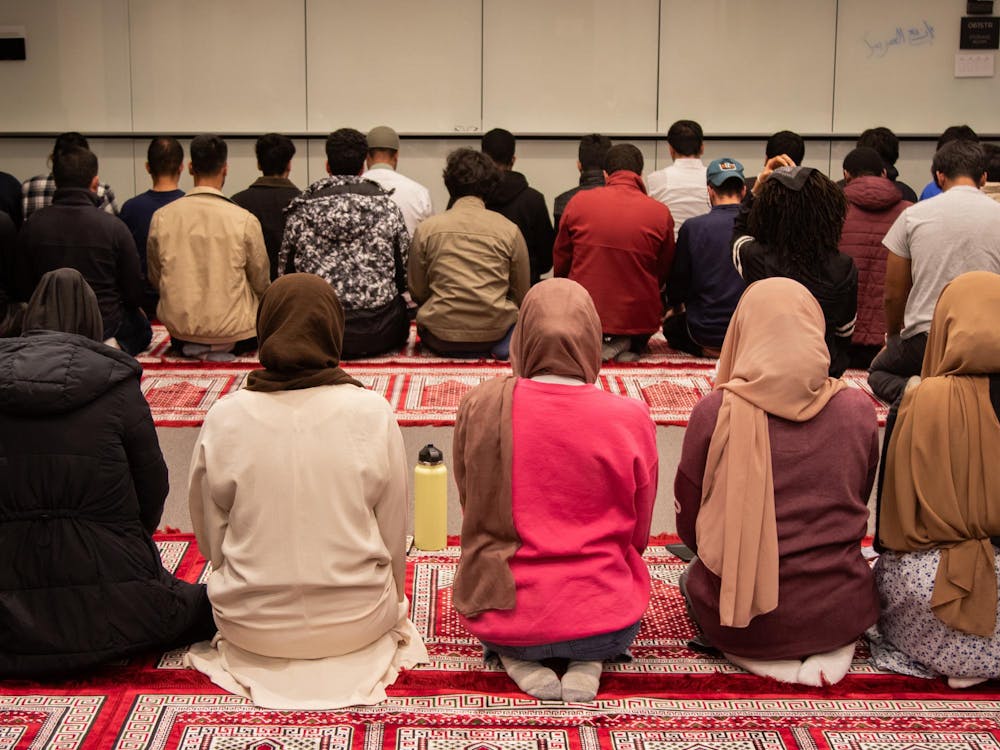In the final days of Ramadan, the Center for Muslim Life reflected on the effectiveness of support systems available for Muslim students.
Ramadan is the ninth month of the Islamic lunar calendar and Muslims’ holy month of prayer and fasting.
“We're really inspired by the resilience of our community, particularly because we're in a time of crisis and numerous members of our community are watching their family members be persecuted and displaced in the most extreme levels,” said Hadeel Hamoud, program director of the CML.
“We are extremely grateful for the resources that we have here on campus,” she said.
One of the traditions of Ramadan is fasting from food and drink between dawn and sunset. This year, Ramadan began March 10 and ends April 9.
According to Hamoud, Muslims observe Ramadan “to grow closer to God, to grow closer in our faith, to enhance our sense of gratitude and community and work on our spirituality.”
On-campus resources
The CML worked with faculty to create a list of suggestions to support Muslim students in completing schoolwork and exams during Ramadan.
“Students can [work with] their professors to work out an accommodation that makes the most sense for major exams that are occurring during Ramadan,” Hamoud said. This may look like students having their exam time moved up to earlier in the day, so it is closer to when they have eaten, or later in the evening after they break their fast.
Students often request accommodations due to the fasting schedule, but requests can also pertain to other spiritual obligations that occur at night during Ramadan.
Some residence halls have rooms that can be used for prayer and other spiritual obligations.
Hamoud noted that different religious organizations on campus developed a campus prayer map for students to use during prayer times. The map features spaces for mediation, wellness, prayer and safe spaces.
The CML, the Muslim Student Association and the Black Muslim Student Coalition have also provided iftars — fast-breaking evening meals — and nightly evening prayers.
“Before every iftar we do a pre-iftar talk with a featured speaker,” Hamoud said. “We've had faculty, local scholars and scholars from across the country [and] even other activists and community leaders come and do these talks.”
The CML also worked with Duke Dining to provide halal suhoor — pre-fast morning meals — and iftar. Additionally, the center worked with Duke nutritionists to assist Muslim students with their nutrition and health goals.
“Our demand for iftars has been extremely high. Our tickets sell out in less than 10 minutes,” Hamoud said. “That has been the main challenge, ensuring that the people who need the iftar resources can access them and trying to keep up with that demand.”
Peer support
According to Hamoud, some student groups and individuals have chosen to fast in solidarity with Muslim students and educate themselves to support students during Ramadan.
“The more that everybody knows, the more that we can be more informed and better serve these communities, and just have a healthier campus climate,” Hamoud said.
Students can also be supportive by being aware of the fasting practices that take place during Ramadan. Hamoud suggested that student groups can provide to-go boxes when serving food at events, which would allow students who are fasting to save the food for later.
According to Hamoud, the CML has heard positive feedback from students about Ramadan resources and support. She described Ramadan as a “time to reset” during a time of “hurt and pain” for the Muslim community.
“We're constantly centering gratitude,” Hamoud said. “I think it's been really beautiful to see the community come together.”
Get The Chronicle straight to your inbox
Signup for our weekly newsletter. Cancel at any time.
Winston Qian is a Pratt first-year and a staff reporter for the news department.

